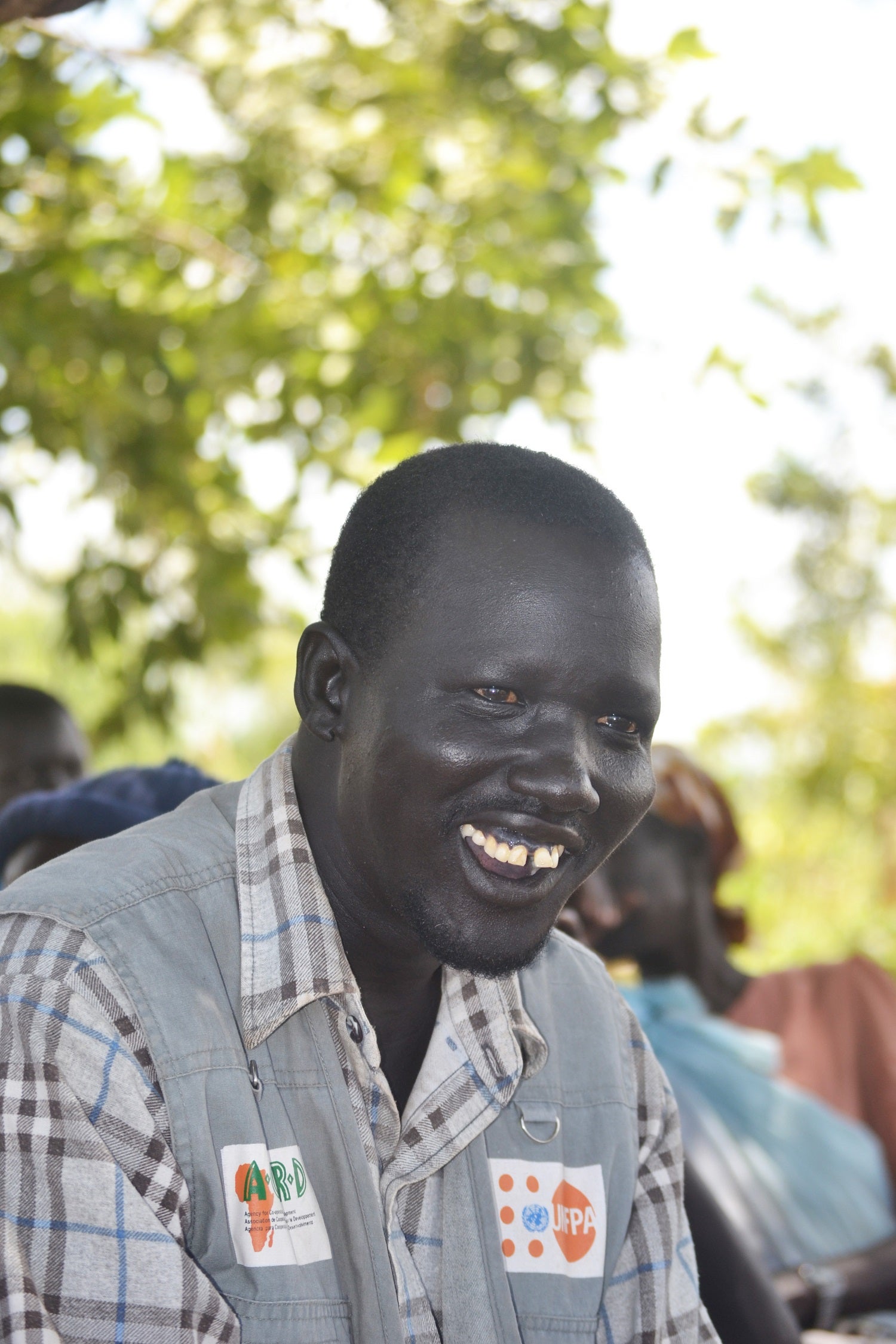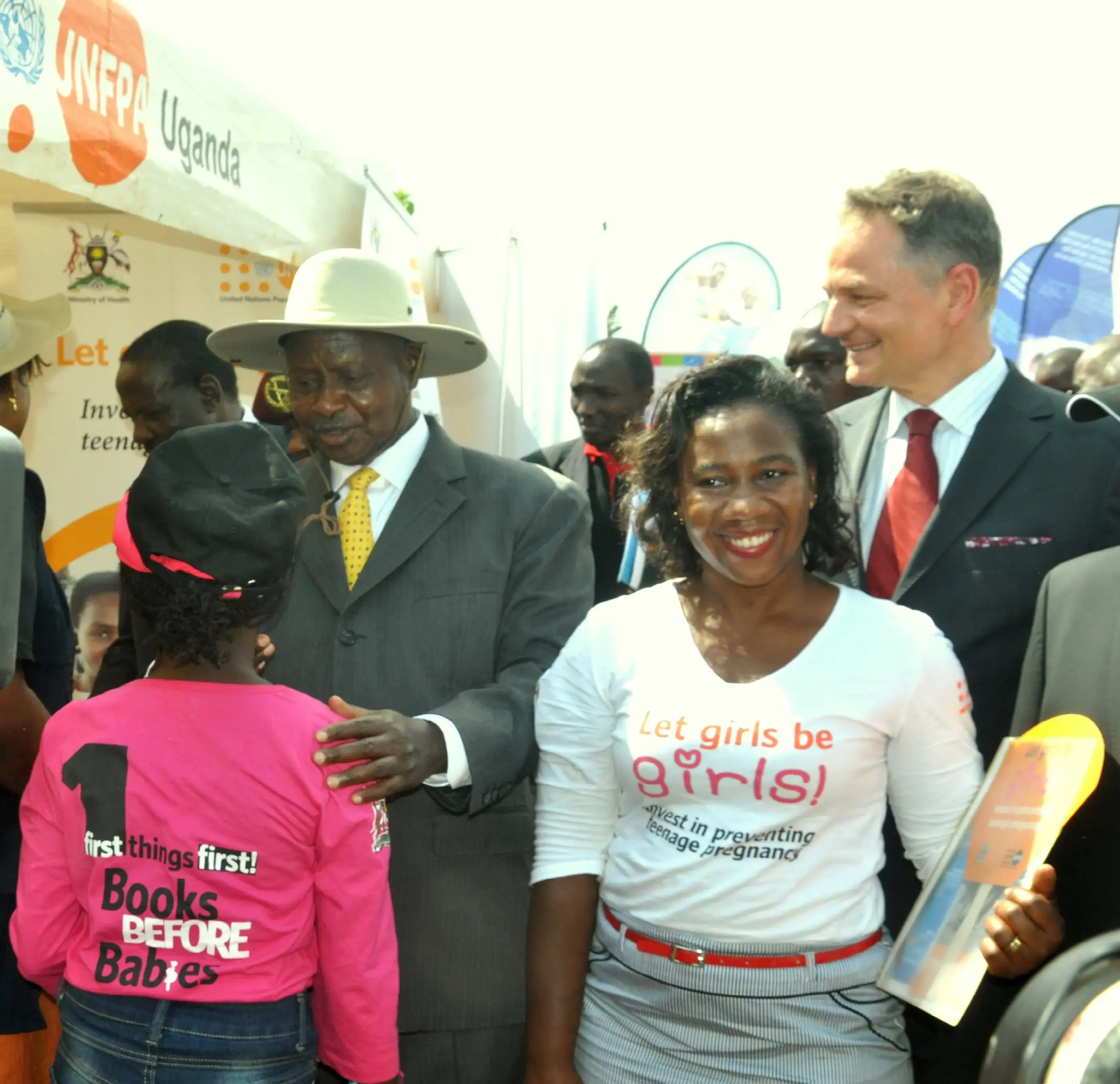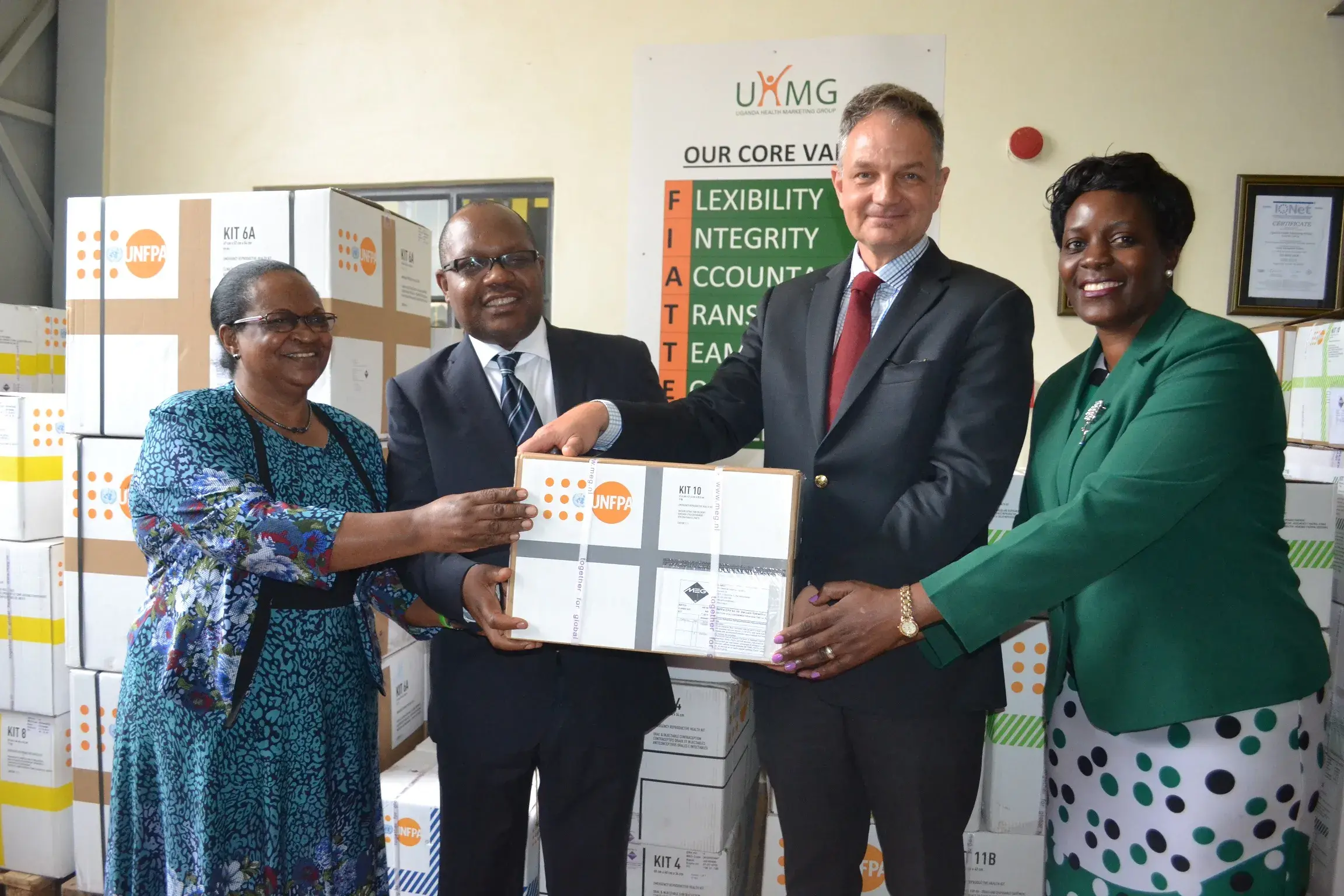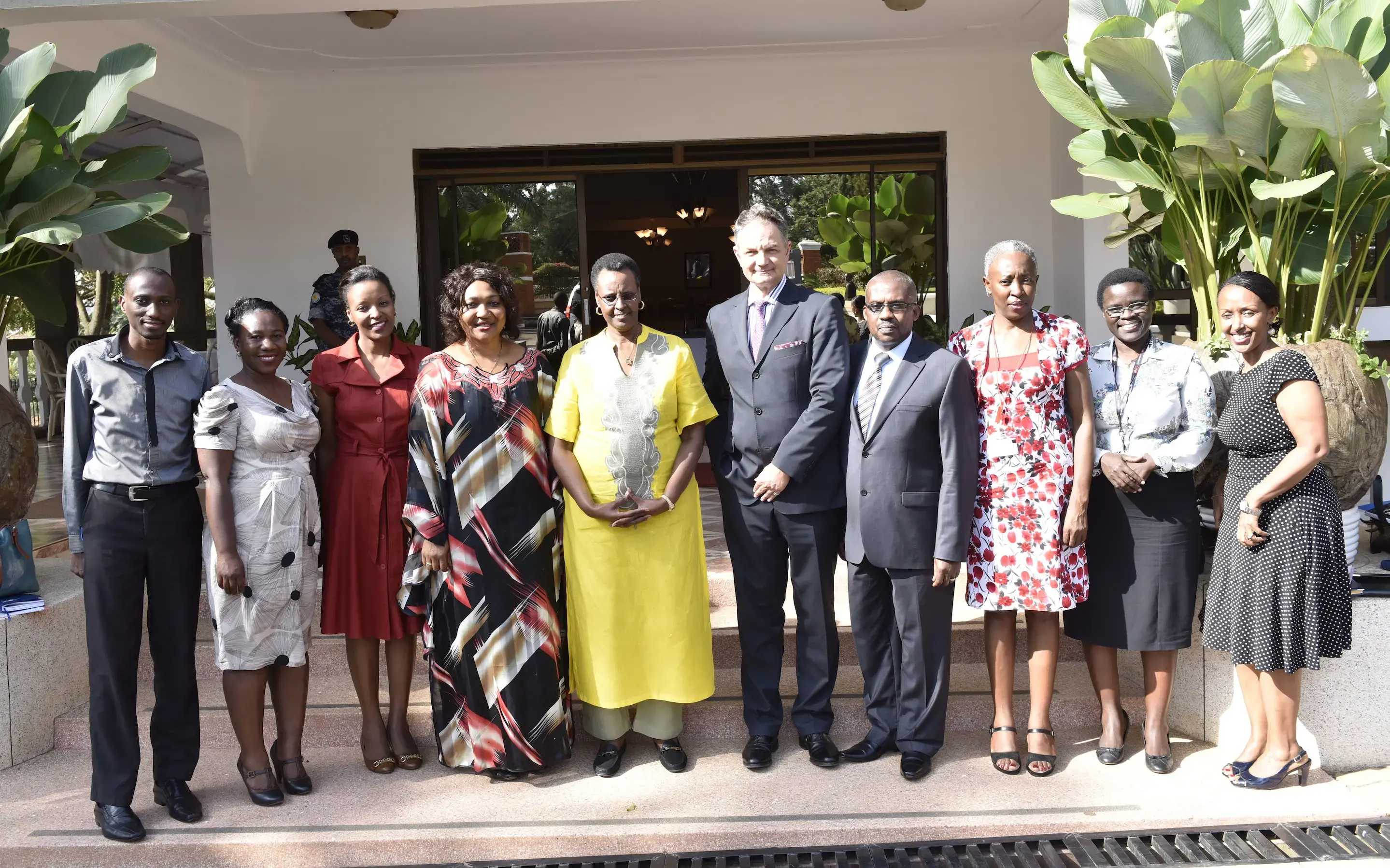Volunteers are a valuable resource for filling the gap between emergency response and community needs. And volunteering can play a key role in recovery efforts following emergencies. For young South Sudanese refugees living in Nyumanzi I refugee settlement in Adjumani, northern Uganda, volunteering is not only for skills development, socialization and fun, but also one way of giving back to the community by advocating for safe motherhood. Thirty five year-old Jacob Manyang is a team leader of 17 volunteering with UNFPA's Implementing Partner ACORD. He shares his story about what inspired him to become a volunteer and what motivates him:
My name is Jacob Manyang. I am 35 years old. I come from Jonglei State in South Sudan. I fled South Sudan in December 2013 when conflict broke out. I entered Uganda through Nimule and Elegu at the Uganda border where we were brought to Adjumani district.
In March this year, ACORD announced that they were looking for volunteers to work and deliver messages to pregnant mothers as well as relay messages on reproductive health, and gender based violence. We were interviewed and I was successful. I am now the team leader of 17 other volunteers in the settlement.
My job is to mainly talk to expectant mothers about the benefits of delivering at a health unit. Our task includes referring mothers to the health centre through pregnancy mapping. It makes me happy to see a healthy mother return home with a healthy baby and a smile on her face.
This is not my country. But my people live here. When I heard there was a volunteer position, I did not hesitate to apply for it. Since, I am not in school anymore and do not have a job, I thought the best way to keep myself busy was to become a volunteer.
In South Sudan I was working in the health department as a nurse in the surgical ward of Jonglei State hospital. I therefore felt that I could use my skills and experience to save mothers and babies displaced by the conflict from my own home.
What motivates me to volunteer is that after this conflict, we are talking about a new generation. If we do not encourage mothers to go to the health centers for these services, we shall see a lot of lives lost giving birth at home. There are a good number of mothers who have ended up delivering at the health unit because I convinced them to.
Currently, a total of 155,514 South Sudanese refugees are being assisted in Uganda since the influx began in mid-December 2013. On average, 55 individuals per day are still arriving, mostly women and children.
In Kiryandongo refugee settlement where Jacob resides together with already 36,013 refugees, the daily average number of new arrivals registered has increased from 50 to 70 over the last month of June due to ongoing fighting in Unity State (South Sudan).





